Surveys have become a great tool for businesses and researchers to conduct surveys and collect feedback and information from the respondents. Creating and conducting surveys is no easy task, but survey software like SurveyMonkey made it easy to conduct surveys.
Launched in 1999, SurveyMonkey has been one of the most popular survey platforms due to its wide range of templates, user-friendly interface, integrations, advanced analytics, security features, and more.
However, SurveyMonkey is not a one-solution-fits-all software. Thus, if you are planning to use different survey platforms that best meet your requirements, check out our list of the top 9 best SurveyMonkey alternatives.
Why Should You Consider SurveyMonkey Alternatives?
Before learning about the top competitors of SurveyMonkey, let’s see a few reasons why people are looking for alternatives despite SurveyMonkey being a popular software:
- One of the biggest drawbacks of using SurveyMonkey is pricey plans. The individual monthly plans start at USD 99, which is very expensive.
- Despite the user-friendly interface of SurveyMonkey, the dashboard is a little cluttered, making it difficult for users to use it.
- Limited customization is another reason why people are looking for alternatives to SurveyMonkey.
- Some users feel that SurveyMonkey offers very few survey designs compared to other platforms.
9 Best SurveyMonkey Competitors You Should Know About
There are hundreds of competitors to SurveyMonkey in the market, but we have listed the top 9 SurveyMonkey alternatives with excellent features that offer great value for money.
- piHappiness
- SurveySparrow
- Zoho Survey
- QuestionPro
- HubSpot
- Wufoo
- Survicate
- Qualtrics
- Microsoft Forms
1. piHappiness
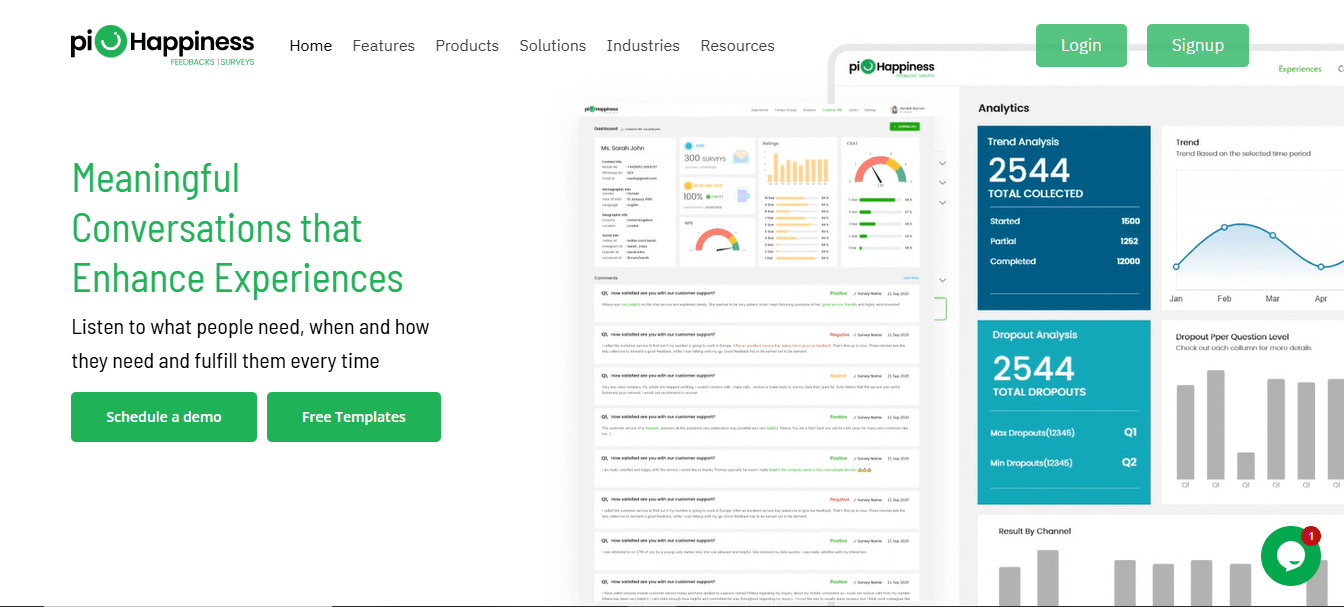
If you want to collect feedback from customers and employees and easily measure satisfaction scores, then piHappiness is one of the top SurveyMonkey alternatives. This platform has high-end features like white labeling, skip logic branching, audience management, integrations, and a broad variety of themes.
Using customizable dashboards, users can track their performance and make targeted strategies to address specific concerns. Moreover, piHappiness allows multi-channel feedback collection, including in-app surveys, kiosks, email, and more.
Pros:
- Advanced metrics like NPS® and CSAT
- Custom templates
- Multilingual options
- Pre-built templates for different industries
- Comprehensive reports and analytics
- Affordable pricing options
Cons:
- Limited number of templates
2. SurveySparrow
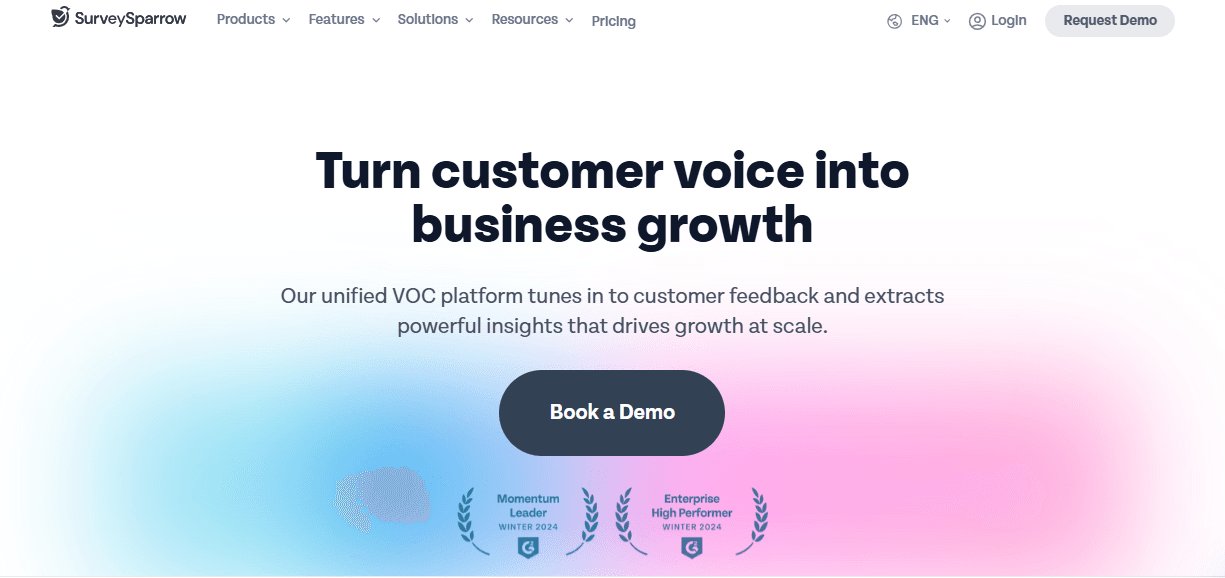
SurveySparrow is another great survey platform that is known for its top-tier features like AI surveys, executive dashboard, NPS® software, 360-degree feedback, and aesthetic survey designs. The platform supports a variety of survey types, including NPS®, customer satisfaction, and employee feedback surveys.
Compared to SurveyMonkey, SurveySparrow offers extensive branding features, allowing you to customize the surveys and forms that fit your brand design. It has an easy-to-use interface, so you can create numerous surveys and dashboards quickly to visualize survey data.
Pros:
- 1000+ templates
- Recurring and offline surveys
- Affordable pricing
- Automatic insights
Cons:
- Not the best choice for complex analysis or to conduct detailed surveys
3. Zoho Survey
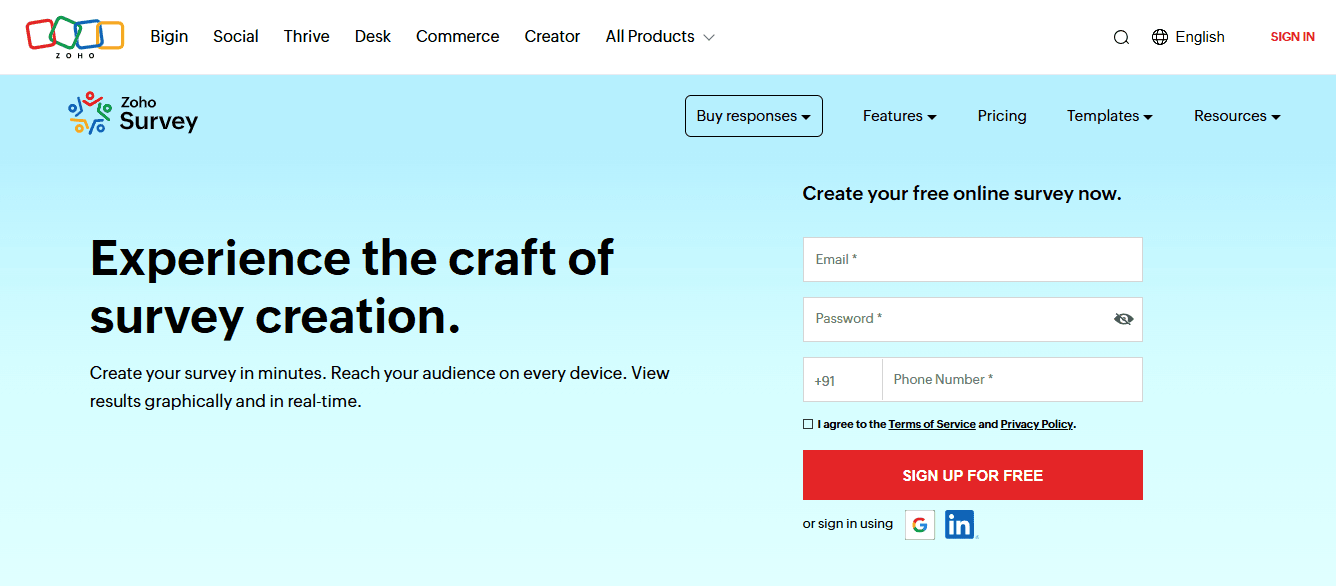
If you are already using Zoho applications, Zoho Survey is a great alternative to SurveyMonkey. This software provides great templates and comes with a drag-and-drop editor, making it easy to create surveys even if you lack high technical knowledge.
You can gather feedback from your customers through online and offline forms. It provides conditional logic and workflow automation, so you can configure the surveys and forms according to your requirements.
Pros:
- User-friendly platform
- Seamless integrations with Zoho applications
- Free plan
- Panel support
Cons:
- Lacks some advanced features
4. QuestionPro

QuestionPro is one of the best feature-rich SurveyMonkey competitors. With 350 different templates, 100+ languages, advanced logic, automated reminders, and a customizable thank-you page, this platform is well-known for its advanced features.
QuestionPro also has rich analytics and reporting tools so that you can discover insights quickly and effectively. Even with a free plan, you can conduct an unlimited number of surveys (100 responses for each survey). All these features make this platform a great choice for researchers.
Pros:
- Conditional logic branching
- Dashboard reports are easily shareable
- Email and live chat customer support
- Powerful analytics and integration options
Cons:
- A little difficult to use
- Expensive monthly plans
5. HubSpot
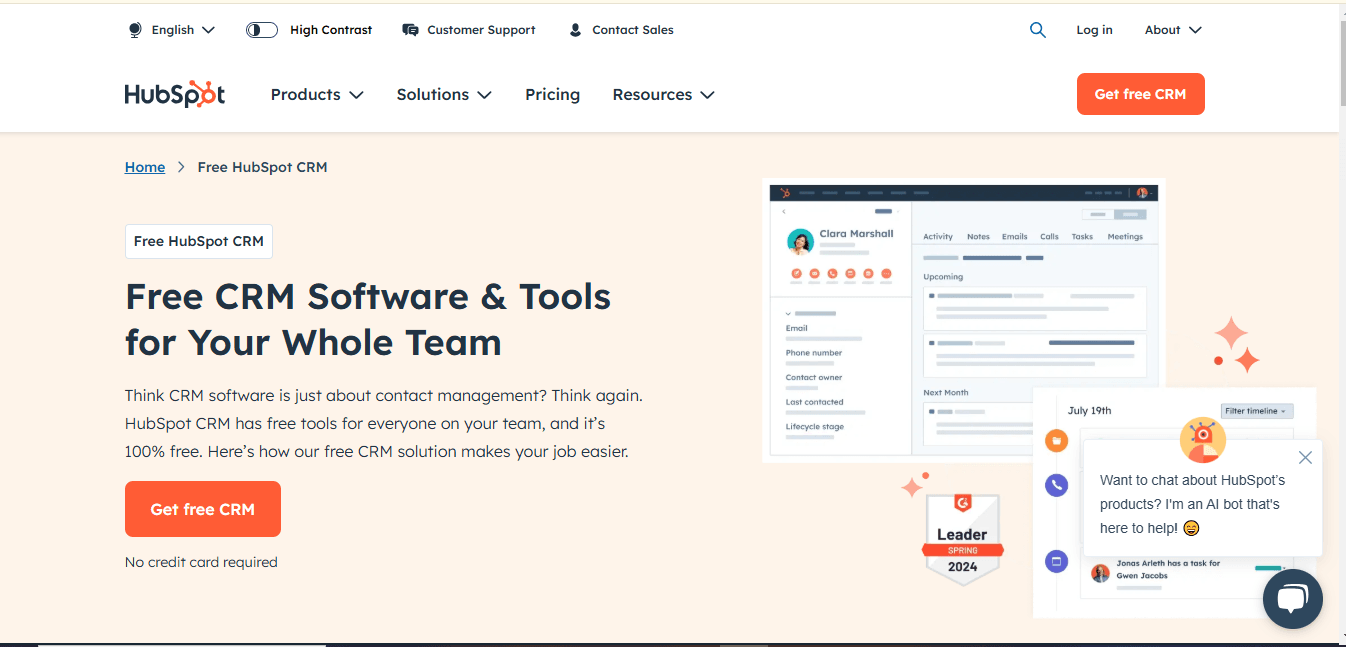
If you are looking for survey software with CRM capabilities, HubSpot is the highly recommended option. From pre-built templates to drag-and-drop interface, this platform makes it easy and quick to build forms and surveys.
This platform offers advanced analytics so that you can analyze the data and find patterns with ease. Also, it tracks user responses for personalized follow-ups. This survey platform is most suitable for businesses whose primary focus is to generate leads and manage customers efficiently.
Pros:
- Easy to use drag-and-drop interface
- Advanced feedback analytics
- Seamlessly integrates with HubSpot CRM and marketing tools
- NPS® and CSAT surveys
Cons:
- Limited number of templates
6. Wufoo
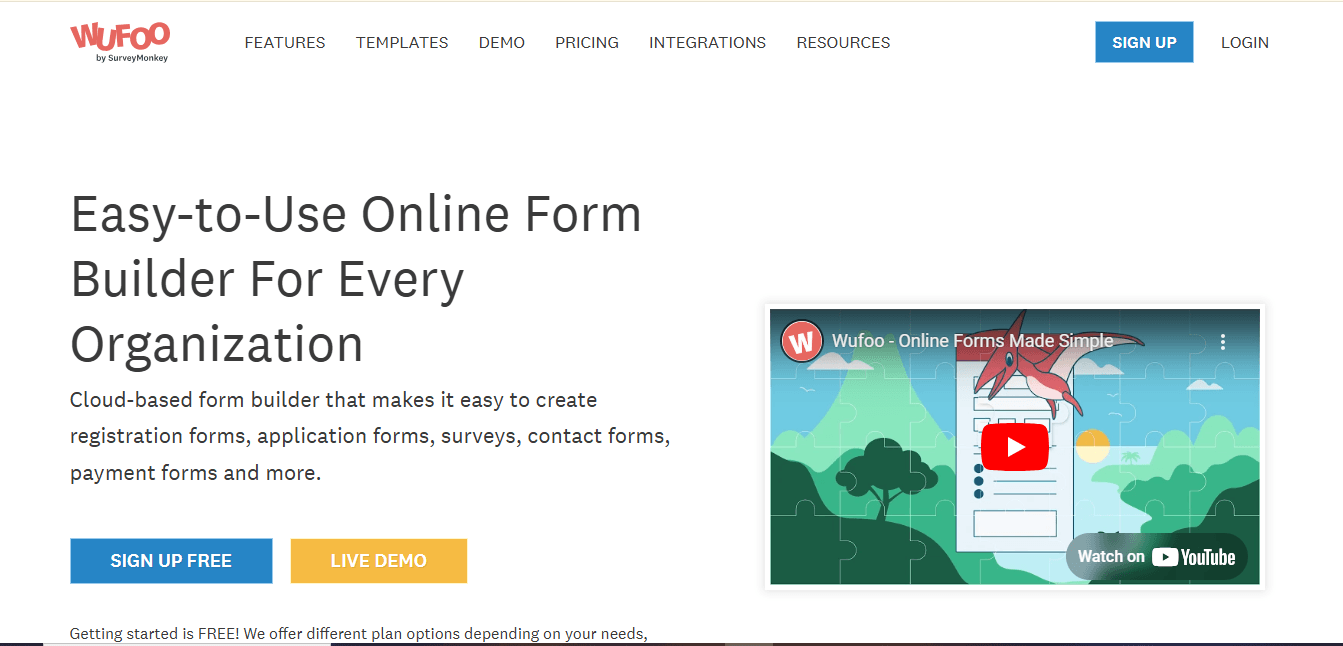
Wufoo is one of the best SurveyMonkey alternatives for those who want to create visually appealing forms and customize the form design with their brand identity. It is a versatile online form builder that offers a free plan and affordable monthly plans.
This platform comes with a broad list of templates to customize so you can use it for anything from quick form generation, lead generation, customer feedback, and event registration among others. In addition, you can get real-time email notifications and other updates.
Pros:
- User-friendly interface
- Simple conditional logic
- Easy payment integrations
- Workflow automation
Cons:
- Complex embedding options
- Lacks advanced analytics and reporting tools
7. Survicate
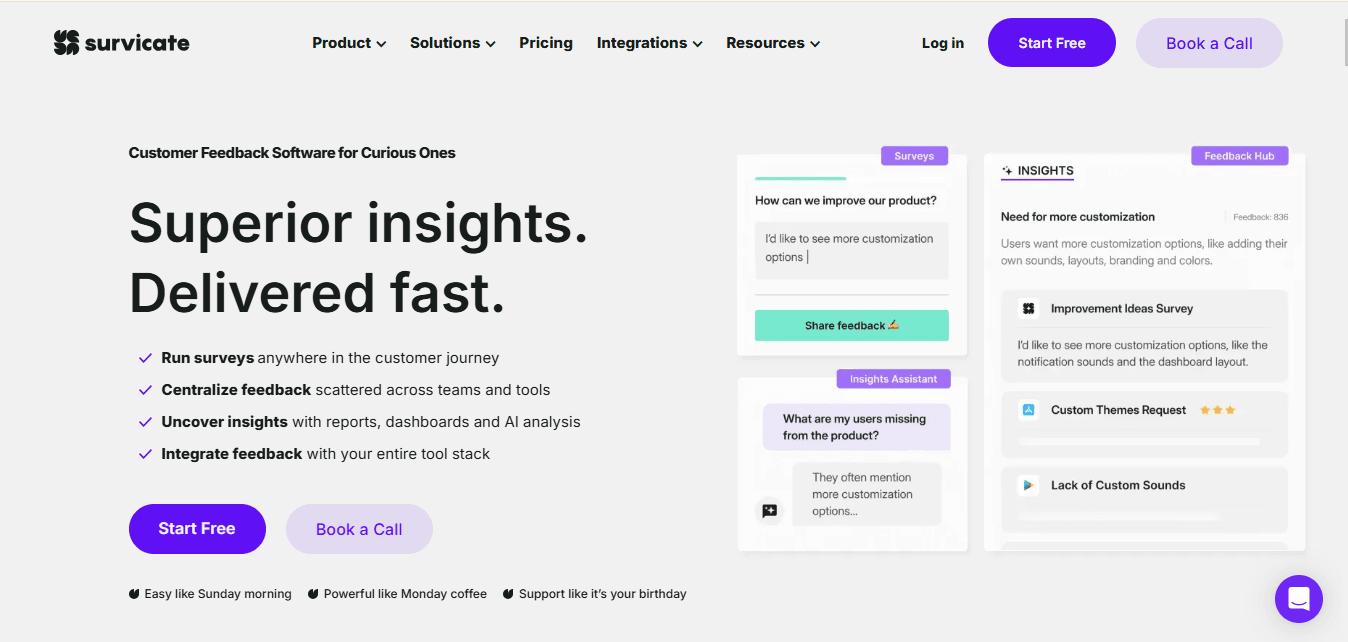
Survicate is a customer feedback platform that assists businesses in capturing insights at different touchpoints. It specializes in embedding surveys across websites, emails, and mobile applications.
The platform integrates with major CRM and marketing tools, which enables smooth data flow and actionable insights. Survicate also offers features like NPS® surveys, customer satisfaction metrics, and real-time feedback analysis.
Pros:
- AI analysis
- HIPAA-compliant
- White labeling
- Great support
Cons:
- Limited design customization options
- Paid plans are very costly
8. Qualtrics
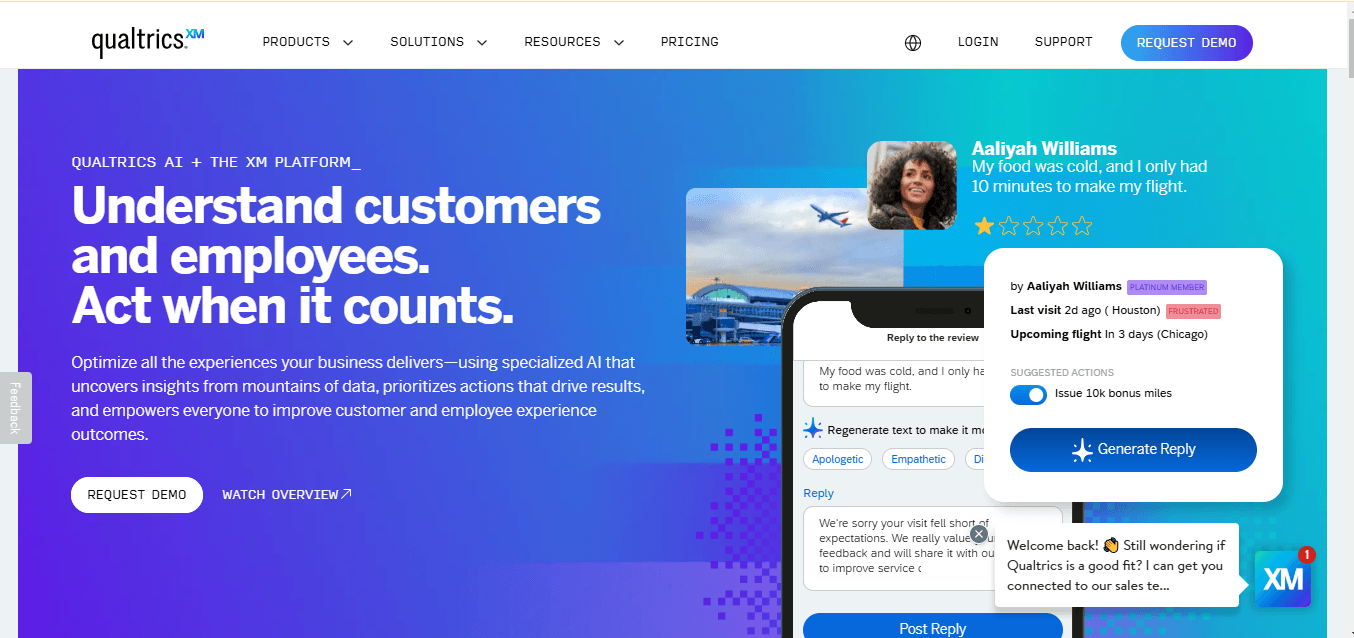
Another SurveyMonkey alternative that is best for research is Qualtrics as it offers statistical analysis, experimental design, and complex sampling features. This platform provides 30 templates which can be customized based on the industry and the type of survey.
It also supports multi-channel distribution, which ensures that surveys reach respondents across web, email, and mobile platforms. Due to its robust reporting and dashboard options, this platform is an ideal choice for organizations that require detailed insights.
Pros:
- Highly customizable
- Advanced analytics and predictive intelligence
- Detailed reports
Cons:
- Even more costly than SurveyMonkey
9. Microsoft Forms
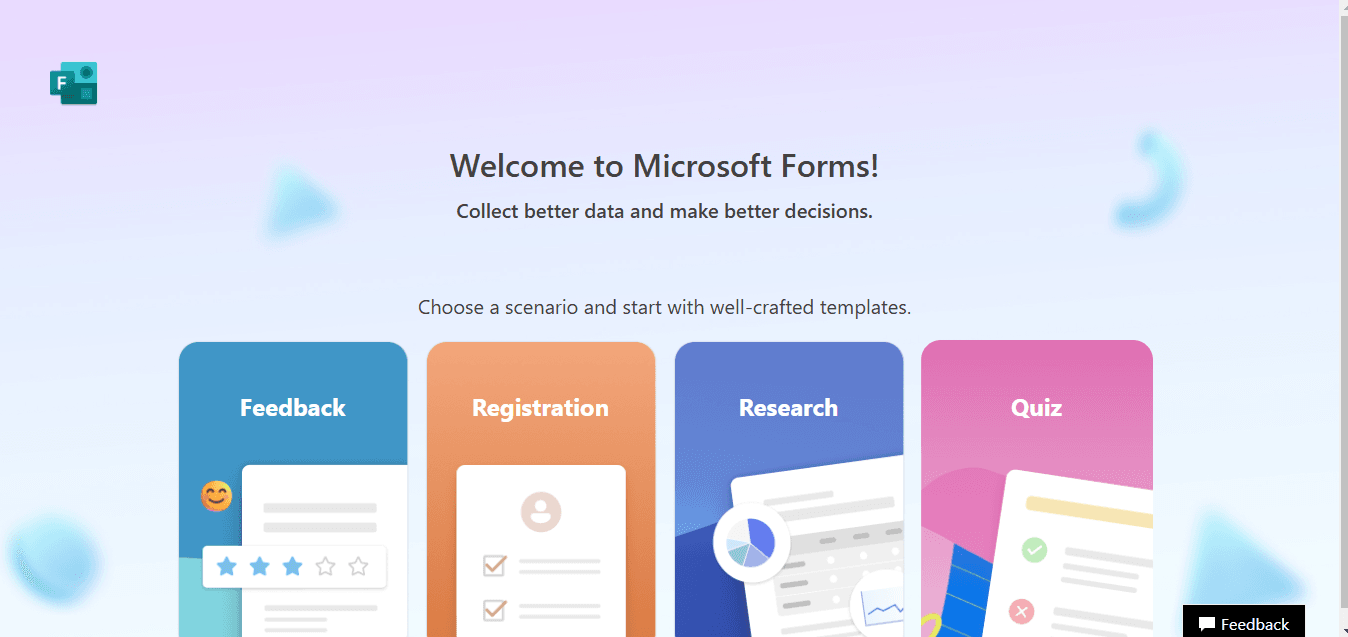
Want free SurveyMonkey alternatives? Then, we recommend Microsoft Forms. It is a free tool offered through the Microsoft 365 suite and easily integrates with many of Microsoft’s tools. It is a great low-cost option for businesses with Microsoft 365.
This platform is relatively easy to use and allows real-time collaboration. It has a few notable features like branching, sections, multilingual support, and anonymous submissions. In addition, you can directly analyze the responses in Excel, ensuring quick insights from collected data.
Pros:
- Easy to use
- Simple integrations
- Quick collaboration
Cons:
- No advanced survey features
Conclusion
SurveyMonkey is undoubtedly one of the best tools, but it’s not always the best fit for every business. That is why we have picked the 9 best SurveyMonkey alternatives that offer even better features so that you can select the most suitable tool.
Choosing the right survey tool depends on your business needs, budget, and integration requirements. If you are still uncertain about which one to choose, book a demo or try free templates of piHappiness








